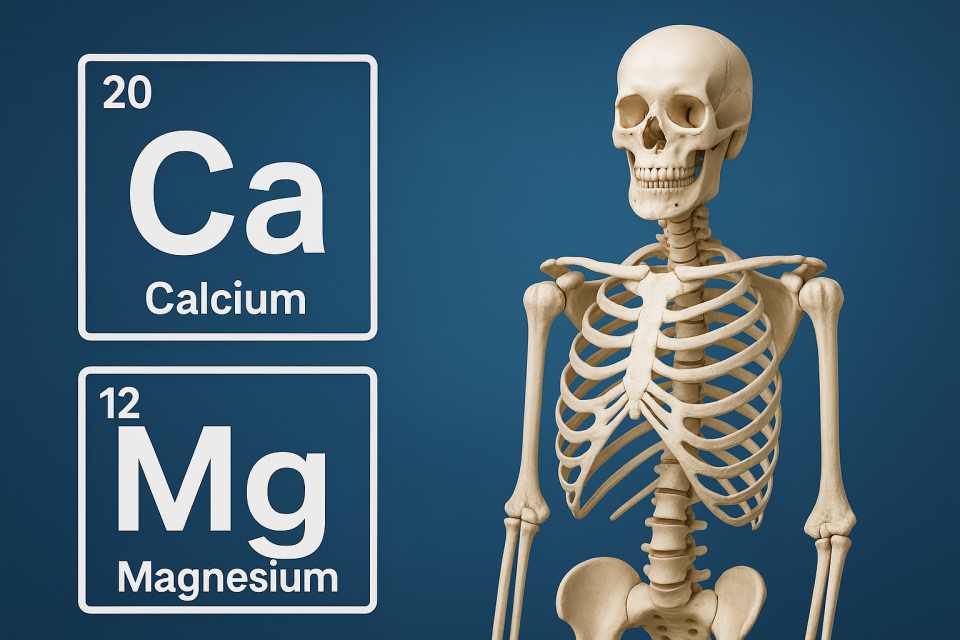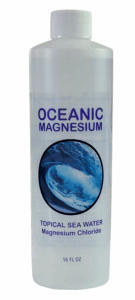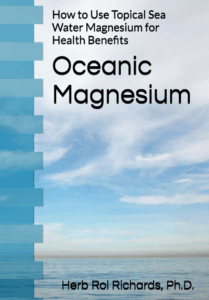The importance of calcium for strong bones is emphasized in both the media and by doctors, especially as you get older and face the risk of osteoporosis, a debilitating condition known for its weakening effects on bones. Administering calcium to the bones can address the deterioration of bone structure; however, it may not be sufficient for maintaining their strength. Magnesium chloride is necessary to ensure proper bone strength as it fortifies the bones and prevents them from fracturing during high-impact situations, such as a fall. Despite adequate supplementation, effectively delivering calcium to specific regions of the body remains a challenge.
For those of retirement age or older, consuming a full jar of calcium is unlikely to benefit your bones. It seems that Mother Nature has abandoned you; once she deems you no longer useful for procreation, she allows your body to deteriorate and makes way for younger individuals. In her eyes, human longevity is both a hindrance and a squandered asset, making her quite ruthless indeed.
So, where does the calcium end up?
Interestingly, supplementing calcium in the human body has an unexpected effect. Rather than promoting health, it overwhelms the cells and results in failure. Surprisingly, calcium can be toxic to human cells, and without magnesium, which helps maintain its health, it can cause cell breakdown instead of support.
Your doctor may not be aware that taking calcium supplements can contribute to higher rates of heart disease, cancer, arthritis, dementia, and premature death.
Undeniably, calcium plays a crucial role in maintaining strong bones. However, relying solely on oral means of obtaining it is not a viable solution. In fact, such supplementation can be harmful to one’s overall well-being.
Recent research suggests that conventional wisdom may not always hold true. Contrary to previous beliefs, the majority of human bodies, including those of older individuals, do not necessitate additional calcium intake. Instead, they require a process that aids in the utilization and distribution of existing calcium within the body.
Coincidentally, a budget-friendly mineral does the job when paired with calcium. It would be more advantageous for one’s health to stop taking calcium supplements and greatly increase magnesium intake.
Promoters refer to magnesium supplements that are taken by mouth, which tend to have limited effectiveness. In fact, the body typically absorbs less than ten percent of these oral supplements at most.
Oral magnesium supplementation has its place; it is important to note that simply having a small amount of magnesium in your stomach is better than having none at all. However, for optimal absorption into your bloodstream and cells, which is crucial for stimulating the regenerative properties of calcium from a regular diet, transdermal (through the skin) liquid magnesium supplementation is necessary, and sourced from the sea is preferred.
This involves obtaining a reliable source of oceanic magnesium and applying it to your skin. This particular form of seawater magnesium was utilized during times of war when blood transfusions were not available.
Magnesium is an ideal fit for human biology. When applied topically, it relaxes the protective skin layers that typically block the absorption of potentially hazardous substances, allowing this vital nutrient to permeate without hindrance.
Your body is familiar with this substance and acknowledges its necessity. As it travels through your tissue and into your bloodstream, your body eagerly awaits its arrival.
After entering the cell, magnesium forms bonds with potentially harmful calcium. This transformation not only renders the calcium harmless but also makes it accessible for the body to utilize and transport to the bones. In this way, magnesium is highly valued and welcomed in the bones as it strengthens them and prevents them from weakening under pressure.
As the understanding of the connection between magnesium and calcium continues to expand, vitamin producers have quickly responded by developing intricate combinations of these minerals without proper calculation. However, it should be noted that only a small amount of magnesium is actually absorbed when taken orally (less than 10%), while absorption through the skin can reach up to 90%.
Besides calcium, your body rarely experiences a shortage of this mineral. And if it does, the deficiency is likely minimal. But when it comes to magnesium, your body may be lacking in this essential nutrient. While taking oral supplements can help provide some magnesium for your gut, only a fraction of it gets absorbed (less than ten percent). To truly replenish the magnesium levels in your cells and bloodstream, you’ll need to apply topical magnesium derived from the ocean generously.
To balance the excess calcium in our daily diet, we must apply and absorb magnesium oil, commonly known as sea-sourced magnesium oil, onto our skin.
Cease consuming additional potentially harmful calcium and instead apply oceanic magnesium to your body to strengthen your bones as they were in the past.
Don’t miss out on learning more about oceanic magnesium by getting the Oceanic Magnesium book, available at a bookstore near you.



Leave a Reply